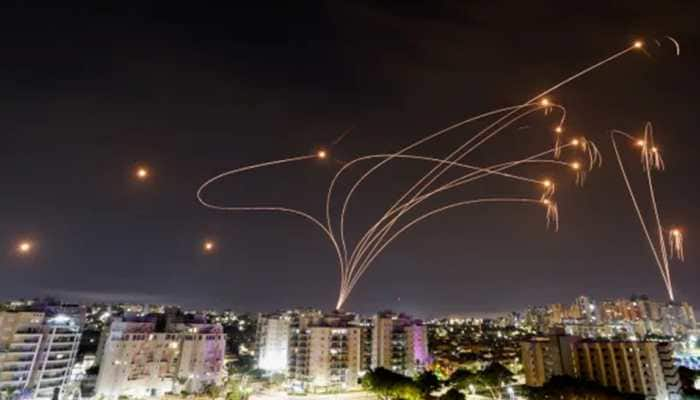BJP likely to gain from multi-phase polling, but sustaining it a challenge
As per the election commission, Lok Sabha polls will be held in seven phases from April 11.
Trending Photos
) File photo of PM Modi and Amit Shah
File photo of PM Modi and Amit Shah New Delhi: The schedule of Lok Sabha elections, which was announced on Sunday, has provided the Bharatiya Janata Party an opportunity to run concerted campaigns in some of the crucial states it is trying to expand or is facing tough contests.
The party, however, also faces the challenge of sustaining its narrative on national security till the end of the seven-phased election that begins on April 11.
For the Congress, which is short on resources, the long campaign poses its own challenges: it requires to make more strenuous efforts to build its narrative on unemployment, farm distress and PM Modi government's unfulfilled promises in the face of perception that the air strikes on a terror base camp in Pakistan have altered the poll narrative.
The Congress' best hopes are in the states its rules - Punjab, Chhattisgarh, Rajasthan and Madhya Pradesh. It is also expecting to improve its performance significantly in Uttar Pradesh due to the appointment of Priyanka Gandhi Vadra as general secretary in-charge of eastern Uttar Pradesh.
The party also has good hopes in Maharashtra and Bihar, where the opposition alliance is likely to formalised in the next few days as also in Jharkhand and Tamil Nadu, where the alliances have been sealed. It is also expecting a turnaround in Haryana and improve its performance in Uttarakhand, Himachal Pradesh and northeastern states.
Punjab will go to the polls in the last and seventh phase on May 19, Bihar and Uttar Pradesh will see polling across all seven phases from April 11 to May 19, Himachal Pradesh will go to the polls in the last phase on May 19 and Haryana and Delhi in the penultimate phase on May 12.
Madhya Pradesh and Jharkhand will have a four-phase election which will end with the last phase on May 19. The two-phase election in Rajasthan, where BJP had won all the seats in 2014, will also be held in the fifth (May 6) and the seventh and last phase (May 19).
Maharashtra will go for election in the first four phases - April 11, 18, 23 and 29 - and Chhattisgarh in the first three phases.
Gujarat, where the BJP had got a clean sweep in 2014, will go to the polls in the third phase (April 23). Uttarakhand will see polling in the first phase on April 11.
The schedule shows that in all the states where the Congress is hoping to do well, it will have to sustain a long and hard campaign. It will need to carefully plan rallies of party chief Rahul Gandhi.
The BJP has time to plan its campaign in Hindi heartland states where it had done very well in the 2014 campaign but faces challenges due to anti-incumbency and the Congress gaining ground.
The party has already started building its narrative on "nationalism", national security and speed of governance but the challenge remains to sustain it in the face of opposition's campaign on bread and butter issues like unemployment and agrarian problems.
BJP leaders have been referring to the air strikes on a terror camp in Pakistan last month as also surgical strikes of 2016 to portray the Modi government as strong and decisive compared to Congress-led UPA on the issue of fighting terror from Pakistan-based groups. The narrative is being led by Prime Minister Narendra Modi.
The BJP can carefully plan its campaign in Bihar, Uttar Pradesh and West Bengal which have seven-phased elections. It can also do so in Odisha which will have a four-phased election. This is the first time that Odisha will have multi-phased elections. These four states together account for one-third of the Lok Sabha seats.
In UP, which has 80 Lok Sabha seats and where the BJP in 2014 won 71 seats on its own (two were won by its ally Apna Dal), the party faces combined challenge of the Samajwadi Party, the Bahujan Samaj Party and the Rashtriya Lok Dal.
In Bihar that elects 40 MPs, the ruling alliance of the BJP-Janata Dal-United and the Lok Janshakti Party faces a tough contest with a combined opposition that includes Rashtriya Janata Dal, Congress, Rashtriya Lok Samata Party and Hindustani Awami Morcha.
The BJP has been focusing on West Bengal to emerge as the main opponent of the ruling Trinamool Congress. The party is hoping to improve its performance beyond the two Lok Sabha seats that it won in the state in 2014.
Odisha (21 seats) is another state where the BJP has been making serious efforts to gain ground. The Congress has not been able to put up a strong fight over the past few elections against the ruling Biju Janata Dal (BJD).
The BJP hopes good performance in West Bengal and Odisha will help it compensate for losses in the Hindi heartland states where it performed remarkably well in the last Lok Sabha elections. Three of these -- Madhya Pradesh, Chhattisgarh and Rajasthan -- are now ruled by the Congress.
Two other states where BJP is trying to expand its footprint -- Kerala and Tamil Nadu -- will have a single-phase election.
Stay informed on all the latest news, real-time breaking news updates, and follow all the important headlines in india news and world News on Zee News.
Live Tv







)
)
)
)
)
)
)
)
)
)
